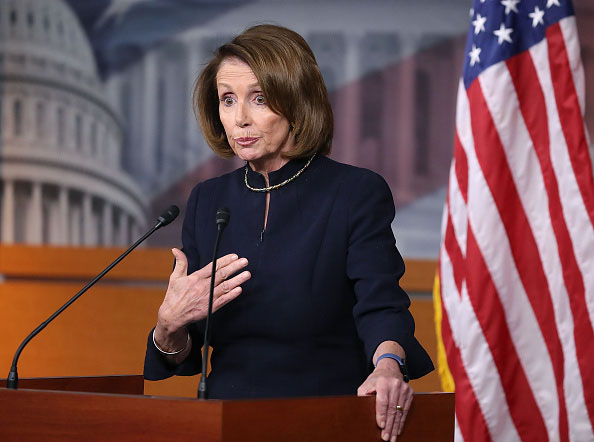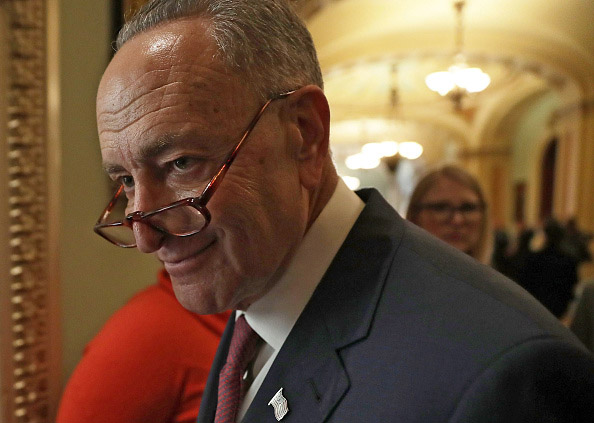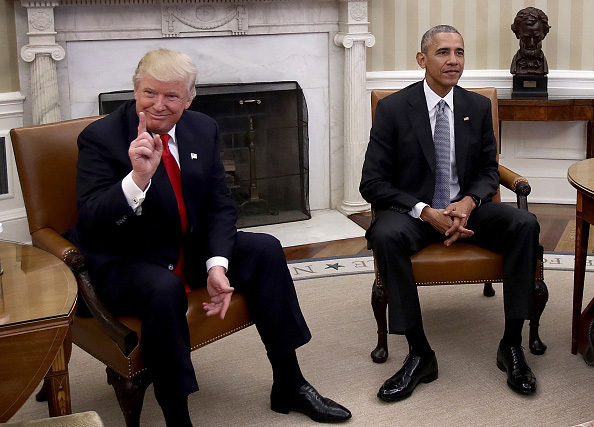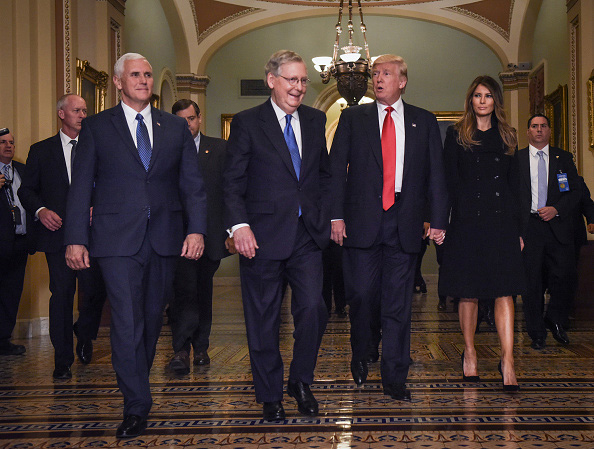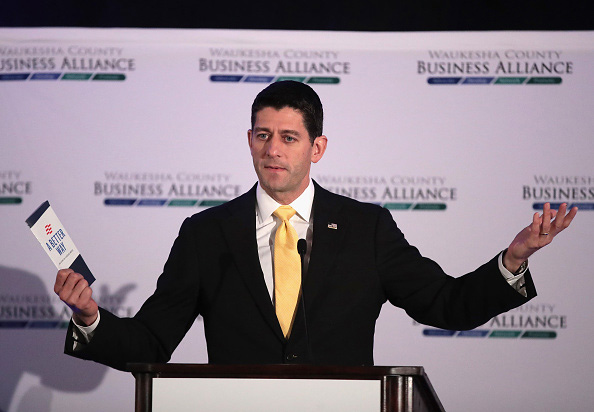ON THIS DAY IN HISTORY
HISTORY, NEWS & POLITICS
HISTORY & POLITICAL HEADLINES
OTD in History… August 8, 1974, Richard Nixon announces he will resign from the presidency over impending Watergate impeachment
By Bonnie K. Goodman, BA, MLIS
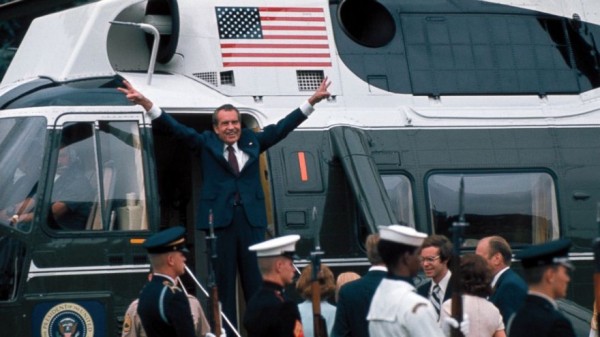
On this day in history August 8, 1974, the 37th President Richard Nixon in a televised address announces to the American public that he is resigning the presidency as of noon on August 9, because of lack of support in upcoming impeachment proceedings Congress was taking against him over his role in covering up the Watergate break-in scandal. To avoid the House of Representatives’ impeachment trial, Nixon decided to become the first president to resign from the office, when he did on August 9, 1974, over two years after the Watergate burglary began the president’s descent into a cover-up that consumed his presidency and launched the nation into a Constitutional Crisis.
Nixon already made his decision to resign on August 7, after a meeting with Republican Congressional leaders, who said because of the “Smoking Gun” Oval Office tape recording, Nixon did not have enough Congressional support to survive impeachment, something the president had been relying on. In his address from the Oval Office, Nixon acknowledged to the public, “By taking this action. I hope that I will have hastened the start of the process of healing which is so desperately needed in America.” The next day just before noon, Nixon left the White House one last time as president. Upon boarding a helicopter on the White House lawn, Nixon gave a victory salute before leaving almost six-years to the day; the Republican Party nominated him for president in 1968. A minute after Nixon departed Vice President Gerald R. Ford was sworn in becoming the 38th president.
In the early morning hours of July 17, 1972, five burglars were caughtwiretapping and stealing documents from the Democratic National Committee headquarters in the Watergate complex beginning the Watergate scandal. All were associated with Nixon’s reelection campaign, the Committee to Re-Elect the President (CREEP) after the police discovered the committee’s phone number in the belongings. The burglars first bugged the DNC in May, and they were returning after the wiretapping did not work properly to fix it.
From the minute, President Nixon first found out about the burglary, he and members of his White House staff and cabinet went down the road of creating an elaborate cover-up to hide the president’s involvement. Nixon and his advisors decided to have the Central Intelligence Agency (CIA) interfere in the FBI investigation and on August 1, Nixon ensured that hush money was given to the intruders, saying, “Well…they have to be paid. That’s all there is to that. They have to be paid.” In August, Nixon delivered a speech assuring the American voters neither he nor the White House was involved in the Watergate break-in. With the public assured, the story faded into the background and Nixon won his reelection bid against George McGovern in a landslide.
Just days after Nixon’s inauguration on January 30, 1973, five of the Watergate burglars and conspirators pled guilty at the president’s request two more were found guilty. When burglar James McCord claimed a letter that the burglars were forced to keep quiet, and perjury was committed at the Watergate trial Judge John Sirica began to be suspicious of a wider conspiracy.
Outside, the investigation continued, two young Washington Post reporters, Carl Bernstein and Bob Woodward were set on uncovering the president and White House’s involved, and a source within only referred to as Deep Throat, help them unravel the conspiracy. The reporting was the basis of their Pulitzer Prize-winning book all the President’s Men and then revealing the Final Days. In 2005, Bernstein and Woodward announced that W. Mark Felt, a former associate director of the FBI was their source after his death.
Soon Nixon’s aides began to turn on each other and the president. Former president assistant and CREEP deputy director Jeb Stuart Magruder was one of the first turn against the White House claiming White House counsel John Dean and Former Attorney General John Mitchell were responsible for a cover-up. The Nixon’s cover-up began to crumble with Dean’s suspicion of the president and a possible recording system. Each time the trail led closer Nixon would fire and force the resignation of his aides, on April 30, advisers H.R. Haldeman and John Ehrlichman, and Attorney General Richard Kleindienst resigned but Dean was fired.
At the same time, the Senate formed the Watergate Committee chaired by Senator Sam Ervin, D-NC, to investigate the mounting evidence of a conspiracy and the Justice Department tapped a Special Prosecutor Archibald Cox to investigate. The Senate’s televised testimony captured the nation which began on May 18. On June 28, Dean’s testimony might have been the most damning revealing a possible recording system in place in the West Wing, accusing Attorney General John Mitchell of authorizing the Watergate break-in and top White House advisors John Ehrlichman and H.R. Haldeman were aware of the plan, while Nixon knew of the cover-up from almost the start. Soon after on July 13, Alexander Butterfield, the former presidential appointments secretary confirms Dean, testifying that Nixon has been recording his conversations since 1971.
The news of the tapes prompts Nixon to order the system disconnected but by July 23, the Senate Watergate Committee was demanding copies of the tapes. The tapes were Nixon’s downfall. Nixon and his lawyers tried to evade the Senate’s subpoena citing executive privilege eventually offering transcripts. The Saturday Night Massacre on October 23, was a turning point, where Nixon fired Cox, and Attorney General Attorney General Elliot Richardson and Deputy Attorney General William Ruckelshaus resigned after refusing to comply with Nixon’s orders to fire the special prosecutor. Solicitor General Robert Bork finally fired Cox and appointed a new Special Prosecutor, Leon Jaworski to take over the investigation.
Afterward, Congress began earnestly talking impeachment, with 84 House representatives “co-sponsoring 17 resolutions” for impeachment. Even as Nixon declared on November 17, “I’m not a crook,” to the press, the evidence mounted against him, contradicted it. Nixon finally agreed to comply partially with the subpoena but an 18-minute gap in one of the tapes only added to questions about his involvement.
By 1974, Congress was well on its way to Impeaching the president, the first time in over 100 years. On February 6, the House passed H.Res. 803, the resolution allowed the House Judiciary Committee to investigate whether there were grounds to impeach the president. The House Judiciary Committee chaired by Peter W. Rodino ordered an impeachment inquiry, that included the hiring of 34 counsel with a total staff of 44 lawyers, and 100 overall, the inquiry took eight months. On April 11, the Judiciary Committee again demanded in a subpoena that Nixon had over the actual tapes, 42 with conversations possibly relating to Watergate, while Jaworski subpoenaed 69 more tapes. On April 29, Nixon released a version of the tape transcripts to the public, with redactions for expletives, and where he claimed were for national security reasons.
In March and April, the DC Grand Jury wind down their indictments of in the Watergate case indicting the Watergate seven among them, top aides John N. Mitchell, H. R. Haldeman, and John D.Ehrlichman, including naming Nixon an “unindicted co-conspirator.” In total 69 were indicted and 48 found guilty in association with the Watergate burglary and cover-up.
On May 9, 1974, the Judiciary Committee began its impeachment hearings, only the brief opening was televised the remaining two months were closed-door sessions. The emphasis was whether the president had obstructed justice. On July 9, the committee released their version of Nixon’s tapes “restoring” some of the “damaging “conversations that were deleted, based on testimony, and on July 12 they released all their evidence 3,888 pages.
On July 24, the committee resumed televising the hearings, allowing Americans to see “six days of 13 hours-per-day coverage,” this included Texas Democrat Barbara Jordan’s notable speech on July 25, supporting Nixon’s impeachment. One by one, the nation heard from Democrats and Republicans supporting impeachment, however, Nixon supporters claimed there was still not enough “specificity.”
The American public supported impeachment according to two new polls from July 1974. A Harris poll showed 53 percent of Americans supported impeachment, and 47 percent believed the Senate should convict Nixon, with 34 percent claiming he should be acquitted, and according to Gallup Nixon only had a 24 percent favorability rating. The polls, however, were released before Nixon complied and released the tapes and the “Smoking Gun” from June 23, 1972, proved he was behind the cover-up.
On July 27, 1974, the House Judiciary Committee recommends that President Richard Nixon is impeached with obstruction of justice the first of eventually three articles of impeachment. The decision came three days after the Supreme Court ruled on July 24, in the United States v. Nixon against the president stating he would have to hand over to the Federal Court the missing White House Tapes recordings his conversations in the West Wing. The Judiciary Committee would decide on two more articles of impeachment in the coming days, on July 29 for abuse of power and contempt of Congress on July 30.
On July 27, the House Judiciary Committee recommended the first article of impeachment for obstruction of justice. Article I passed with a vote of 27 to 11, with 21 Democrats and 6 Republicans voting in favor and 11 Republicans opposing:
On June 17, 1972, and prior thereto, agents of the Committee for the Re-election of the President committed unlawful entry of the headquarters of the Democratic National Committee in Washington, District of Columbia, for the purpose of securing political intelligence. Subsequent thereto, Richard M. Nixon, using the powers of his high office, engaged personally and through his close subordinates and agents, in a course of conduct or plan designed to delay, impede, and obstruct the investigation of such illegal entry; to cover up, conceal and protect those responsible; and to conceal the existence and scope of other unlawful covert activities.
On July 29, the House Judiciary Committee recommended the second article of impeachment for abuse of power. Article II passed with a vote of 28 to 10, with 21 Democrats and 7 Republicans voting in favor and 10 Republicans opposing:
[Nixon] repeatedly engaged in conduct violating the constitutional rights of citizens, impairing the due and proper administration of justice and the conduct of lawful inquiries, or contravening the laws governing agencies of the executive branch and the purposed of these agencies.
On July 30, the House Judiciary Committee recommended the third article of impeachment for contempt of Congress, with 19 Democrats and 2 Republicans voting in favor and 2 Democrats and 15 Republicans opposing:
[Nixon] failed without lawful cause or excuse to produce papers and things as directed by duly authorized subpoenas issued by the Committee on the Judiciary of the House of Representatives on April 11, 1974, May 15, 1974, May 30, 1974, and June 24, 1974, and willfully disobeyed such subpoenas.
According to estimates with the Democratic majorities, the House would have impeached Nixon with 300 votes, and the Senate would have convicted him receiving the 60 votes necessary. Nixon would lose most of his support because of the July 24 Supreme Court ruling ordering Nixon to comply with the subpoenas. On July 30, Nixon hands over the tapes to special prosecutor Leon Jaworski. On August 5, the “Smoking Gun” is made public, the previously unreleased tape of a June 23, 1972, conversation between Nixon and Haldeman in the Oval Office devising a plan to have the CIA obstruct the FBI’s investigation into the Watergate burglary was finally made public among other recordings.
The tape proved that Nixon was part of the cover-up, and he lost the Republicans, who were supporting him in the Judiciary Committee, they now were intending to support Article I, the Obstruction of Justice charge. Most importantly, Nixon lost the support of California Rep. Charles E. Wiggins, who said, “The facts then known to me have now changed… These facts standing alone are legally sufficient in my opinion to sustain at least one count against the President of conspiracy to obstruct justice.”
On August 7, Sen. Barry Goldwater, R-Ariz., U.S. House Minority Leader John Rhodes, R-Ariz., and U.S. Senate Minority Leader Hugh Scott, R-Pa met with Nixon in the Oval Office, telling him he basically has no support in Congress, would be impeached and convicted. Certain, he would eventually be removed from office. Goldwater later wrote, Nixon “knew beyond any doubt that one way or another his presidency was finished.” Rather than face certain impeachment and removal from office, Nixon decided to control the situation.
On August 8, Nixon spoke to the nation the last time, announcing his decision to resign effective at noon EST on August 9, 1974. Nixon announced in his address, “To continue to fight through the months ahead for my personal vindication would almost totally absorb the time and attention of both the President and the Congress in a period when our entire focus should be on the great issues of peace abroad and prosperity without inflation at home. Therefore, I shall resign the Presidency effective at noon tomorrow. Vice President Ford will be sworn in as President at that hour in this office.”
Many historians see Watergate as the nation’s worst political scandal while clearly placing the blame on Nixon for the downfall of his presidency. Preeminent Watergate historian Stanley I. Kutler in his book The Wars of Watergate: The Last Crisis of Richard Nixon argued that Nixon was “at the center of Watergate,” and “The wars of Watergate are rooted in the lifelong personality of Richard Nixon. Kutler concludes, The Watergate scandal “consumed and convulsed the nation and tested the constitutional and political system as it had not been tested since the Civil War.” (Kutler, 616) London Times Washington Bureau Chief Fred Emery in his book Watergate: The Corruption of American Politics and the Fall of Richard Nixon called Watergate “a self-destruct tragedy for Richard Nixon.” Emery determines that Watergate “was a pattern of malfeasance by him and his men that led to the damning — and bipartisan — vote in Congress.” (Emery, xii)
Historian Joan Hoff in her revisionist history, Nixon Reconsidered, viewed Nixon’s presidency as “more than Watergate,” and “Watergate more than Nixon.” Hoff believes the scandal was a product of the times, concluding, “Watergate was a disaster waiting to happen, given the decline in political ethics and practices during the Cold War.” (Hoff, 341) While historian Allan Lichtman notes Watergate “was a widespread conspiracy. Several dozen people went to jail, including other very high officials of the [Nixon] campaign and of the Nixon administration. So a lot of people who should have known much better got sucked into this terrible scandal and it is a tragedy of Shakespearean proportions because in many ways Richard Nixon did a lot for the country.”
On August 9, Nixon left the White House flashing V for victory signs before boarding Marine One and becoming the first president to resign from the office. At the same time, Vice President Gerald Ford took the oath of office, and declared, “My fellow Americans, our long national nightmare is over.” A month later, Ford pardoned Nixon, and in time, Nixon’s image rehabilitated but the stain of Watergate remained on the nation and Nixon.
SOURCES & READ MORE
Emery, Fred. Watergate: The Corruption and Fall of Richard Nixon. London: Pimlico, 1995.
Genovese, Michael A. The Watergate Crisis. Westport, Conn: Greenwood Press, 1999.
Hoff, Joan. Nixon Reconsidered. New York: BasicBooks, 1998.
Kutler, Stanley I. The Wars of Watergate: The Last Crisis of Richard Nixon. New York: Norton, 1992.
Kutler, Stanley I. Abuse of Power: The New Nixon Tapes. London: Touchstone, 1999.
Small, Melvin. A Companion to Richard M. Nixon. Chichester, West Sussex: Wiley Blackwell, 2011.
Bonnie K. Goodman has a BA and MLIS from McGill University and has done graduate work in religion at Concordia University. She is a journalist, librarian, historian & editor, and a former Features Editor at the History News Network & reporter at Examiner.com where she covered politics, universities, religion and news. She has a dozen years experience in education & political journalism.
244 – Address to the Nation Announcing Decision To Resign the Office of President of the United States
August 8, 1974
Good evening:
This is the 37th time I have spoken to you from this office, where so many decisions have been made that shaped the history of this Nation. Each time I have done so to discuss with you some matter that I believe affected the national interest.
In all the decisions I have made in my public life, I have always tried to do what was best for the Nation. Throughout the long and difficult period of Watergate, I have felt it was my duty to persevere, to make every possible effort to complete the term of office to which you elected me.
In the past few days, however, it has become evident to me that I no longer have a strong enough political base in the Congress to justify continuing that effort. As long as there was such a base, I felt strongly that it was necessary to see the constitutional process through to its conclusion, that to do otherwise would be unfaithful to the spirit of that deliberately difficult process and a dangerously destabilizing precedent for the future.
But with the disappearance of that base, I now believe that the constitutional purpose has been served, and there is no longer a need for the process to be prolonged.
I would have preferred to carry through to the finish, whatever the personal agony it would have involved, and my family unanimously urged me to do so. But the interests of the Nation must always come before any personal considerations.
From the discussions I have had with Congressional and other leaders, I have concluded that because of the Watergate matter, I might not have the support of the Congress that I would consider necessary to back the very difficult decisions and carry out the duties of this office in the way the interests of the Nation will require.
I have never been a quitter. To leave office before my term is completed is abhorrent to every instinct in my body. But as President, I must put the interests of America first. America needs a full-time President and a full-time Congress, particularly at this time with problems we face at home and abroad.
To continue to fight through the months ahead for my personal vindication would almost totally absorb the time and attention of both the President and the Congress in a period when our entire focus should be on the great issues of peace abroad and prosperity without inflation at home.
Therefore, I shall resign the Presidency effective at noon tomorrow. Vice President Ford will be sworn in as President at that hour in this office.
As I recall the high hopes for America with which we began this second term, I feel a great sadness that I will not be here in this office working on your behalf to achieve those hopes in the next 2 1/2 years. But in turning over direction of the Government to Vice President Ford, I know, as I told the Nation when I nominated him for that office 10 months ago, that the leadership of America will be in good hands.
In passing this office to the Vice President, I also do so with the profound sense of the weight of responsibility that will fall on his shoulders tomorrow and, therefore, of the understanding, the patience, the cooperation he will need from all Americans.
As he assumes that responsibility, he will deserve the help and the support of all of us. As we look to the future, the first essential is to begin healing the wounds of this Nation, to put the bitterness and divisions of the recent past behind us and to rediscover those shared ideals that lie at the heart of our strength and unity as a great and as a free people.
By taking this action, I hope that I will have hastened the start of that process of healing which is so desperately needed in America.
I regret deeply any injuries that may have been done in the course of the events that led to this decision. I would say only that if some of my judgments were wrong–and some were wrong–they were made in what I believed at the time to be the best interest of the Nation.
To those who have stood with me during these past difficult months–to my family, my friends, to many others who joined in supporting my cause because they believed it was right–I will be eternally grateful for your support.
And to those who have not felt able to give me your support, let me say I leave with no bitterness toward those who have opposed me, because all of us, in the final analysis, have been concerned with the good of the country, however our judgments might differ.
So, let us all now join together in affirming that common commitment and in helping our new President succeed for the benefit of all Americans.
I shall leave this office with regret at not completing my term, but with gratitude for the privilege of serving as your President for the past 5 1/2 years. These years have been a momentous time in the history of our Nation and the world. They have been a time of achievement in which we can all be proud, achievements that represent the shared efforts of the Administration, the Congress, and the people.
But the challenges ahead are equally great, and they, too, will require the support and the efforts of the Congress and the people working in cooperation with the new Administration.
We have ended America’s longest war, but in the work of securing a lasting peace in the world, the goals ahead are even more far-reaching and more difficult. We must complete a structure of peace so that it will be said of this generation, our generation of Americans, by the people of all nations, not only that we ended one war but that we prevented future wars.
We have unlocked the doors that for a quarter of a century stood between the United States and the People’s Republic of China.
We must now ensure that the one quarter of the world’s people who live in the People’s Republic of China will be and remain not our enemies, but our friends.
In the Middle East, 100 million people in the Arab countries, many of whom have considered us their enemy for nearly 20 years, now look on us as their friends. We must continue to build on that friendship so that peace can settle at last over the Middle East and so that the cradle of civilization will not become its grave.
Together with the Soviet Union, we have made the crucial breakthroughs that have begun the process of limiting nuclear arms. But we must set as our goal not just limiting but reducing and, finally, destroying these terrible weapons so that they cannot destroy civilization and so that the threat of nuclear war will no longer hang over the world and the people.
We have opened the new relation with the Soviet Union. We must continue to develop and expand that new relationship so that the two strongest nations of the world will live together in cooperation, rather than confrontation.
Around the world in Asia, in Africa, in Latin America, in the Middle East-there are millions of people who live in terrible poverty, even starvation. We must keep as our goal turning away from production for war and expanding production for peace so that people everywhere on this Earth can at last look forward in their children’s time, if not in our own time, to having the necessities for a decent life.
Here in America, we are fortunate that most of our people have not only the blessings of liberty but also the means to live full and good and, by the world’s standards, even abundant lives. We must press on, however, toward a goal, not only of more and better jobs but of full opportunity for every American and of what we are striving so hard right now to achieve, prosperity without inflation.
For more than a quarter of a century in public life, I have shared in the turbulent history of this era. I have fought for what I believed in. I have tried, to the best of my ability, to discharge those duties and meet those responsibilities that were entrusted to me.
Sometimes I have succeeded and sometimes I have failed, but always I have taken heart from what Theodore Roosevelt once said about the man in the arena, “whose face is marred by dust and sweat and blood, who strives valiantly, who errs and comes short again and again because there is not effort without error and shortcoming, but who does actually strive to do the deed, who knows the great enthusiasms, the great devotions, who spends himself in a worthy cause, who at the best knows in the end the triumphs of high achievements and who at the worst, if he fails, at least fails while daring greatly.”
I pledge to you tonight that as long as I have a breath of life in my body, I shall continue in that spirit. I shall continue to work for the great causes to which I have been dedicated throughout my years as a Congressman, a Senator, Vice President, and President, the cause of peace, not just for America but among all nations-prosperity, justice, and opportunity for all of our people.
There is one cause above all to which I have been devoted and to which I shall always be devoted for as long as I live.
When I first took the oath of office as President 5 1/2 years ago, I made this sacred commitment: to “consecrate my office, my energies, and all the wisdom I can summon to the cause of peace among nations.”
I have done my very best in all the days since to be true to that pledge. As a result of these efforts, I am confident that the world is a safer place today, not only for the people of America but for the people of all nations, and that all of our children have a better chance than before of living in peace rather than dying in war.
This, more than anything, is what I hoped to achieve when I sought the Presidency. This, more than anything, is what I hope will be my legacy to you, to our country, as I leave the Presidency.
To have served in this office is to have felt a very personal sense of kinship with each and every American. In leaving it, I do so with this prayer: May God’s grace be with you in all the days ahead.
Note: The President spoke at 9:01 p.m. from the Oval Office at the White House. The address was broadcast live on nationwide radio and television.
Prior to delivering the address, the President met separately with a group of bipartisan Congressional leaders in his office at the Old Executive Office Building and a group of more than 40 Members of Congress in the Cabinet Room at the White House.
On August 7, 1974, Senators Hugh Scott and Barry Goldwater and Representative John J. Rhodes met with the President in the Oval Office at the White House. The White House released a transcript of their news briefing on the meeting on the same day. The briefing is printed in the Weekly Compilation of Presidential Documents (vol. 10, p. 1010).
Richard Nixon: “Address to the Nation Announcing Decision To Resign the Office of President of the United States,” August 8, 1974. Online by Gerhard Peters and John T. Woolley, The American Presidency Project. http://www.presidency.ucsb.edu/ws/?pid=4324.










